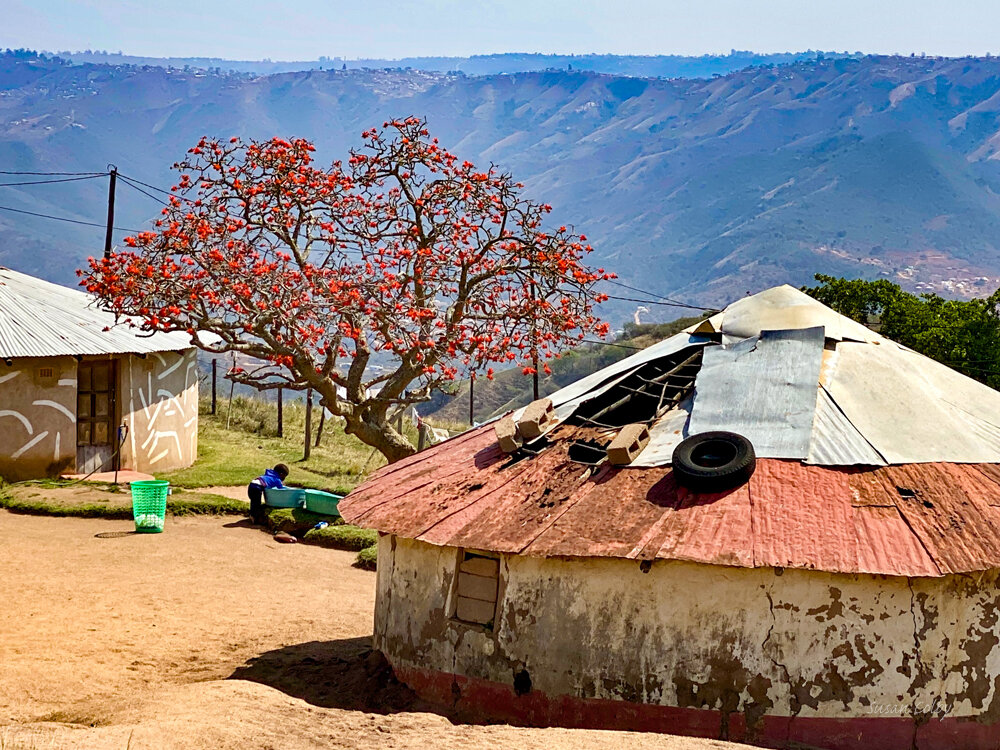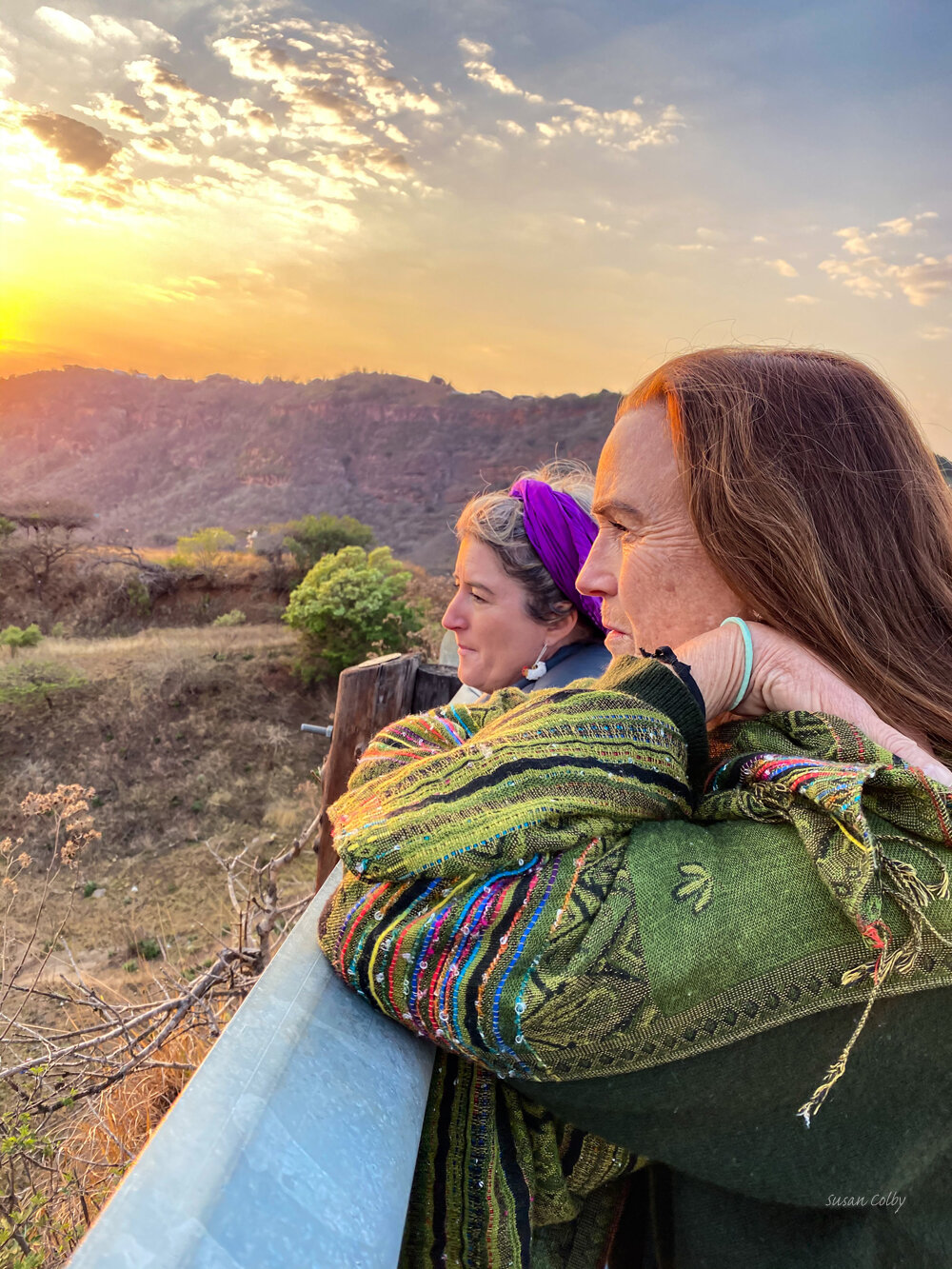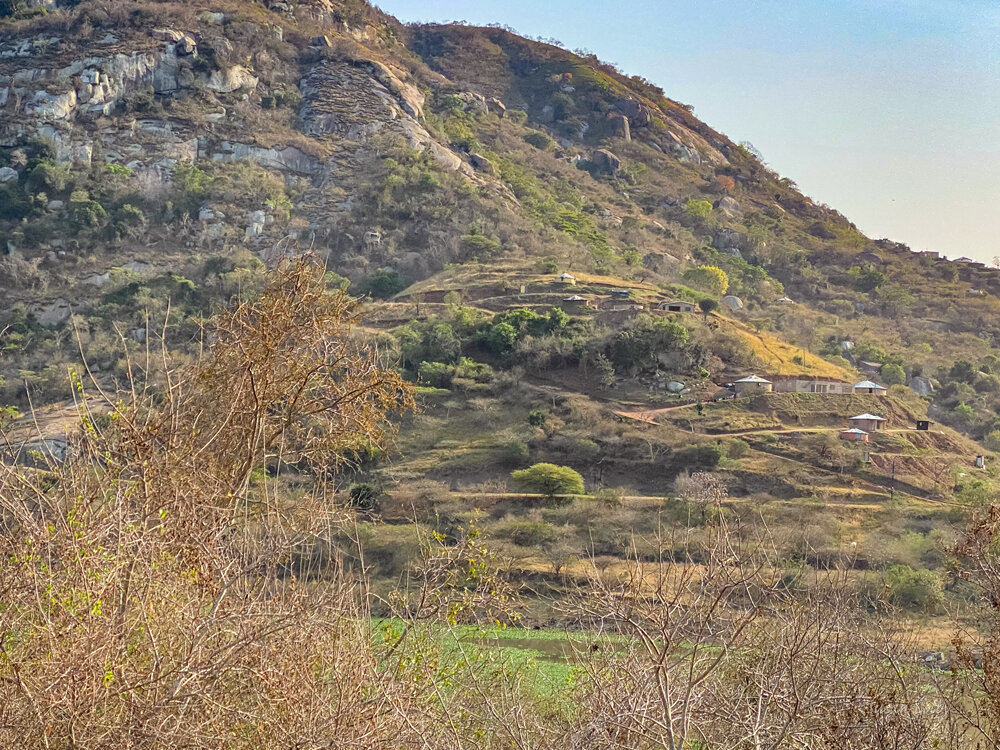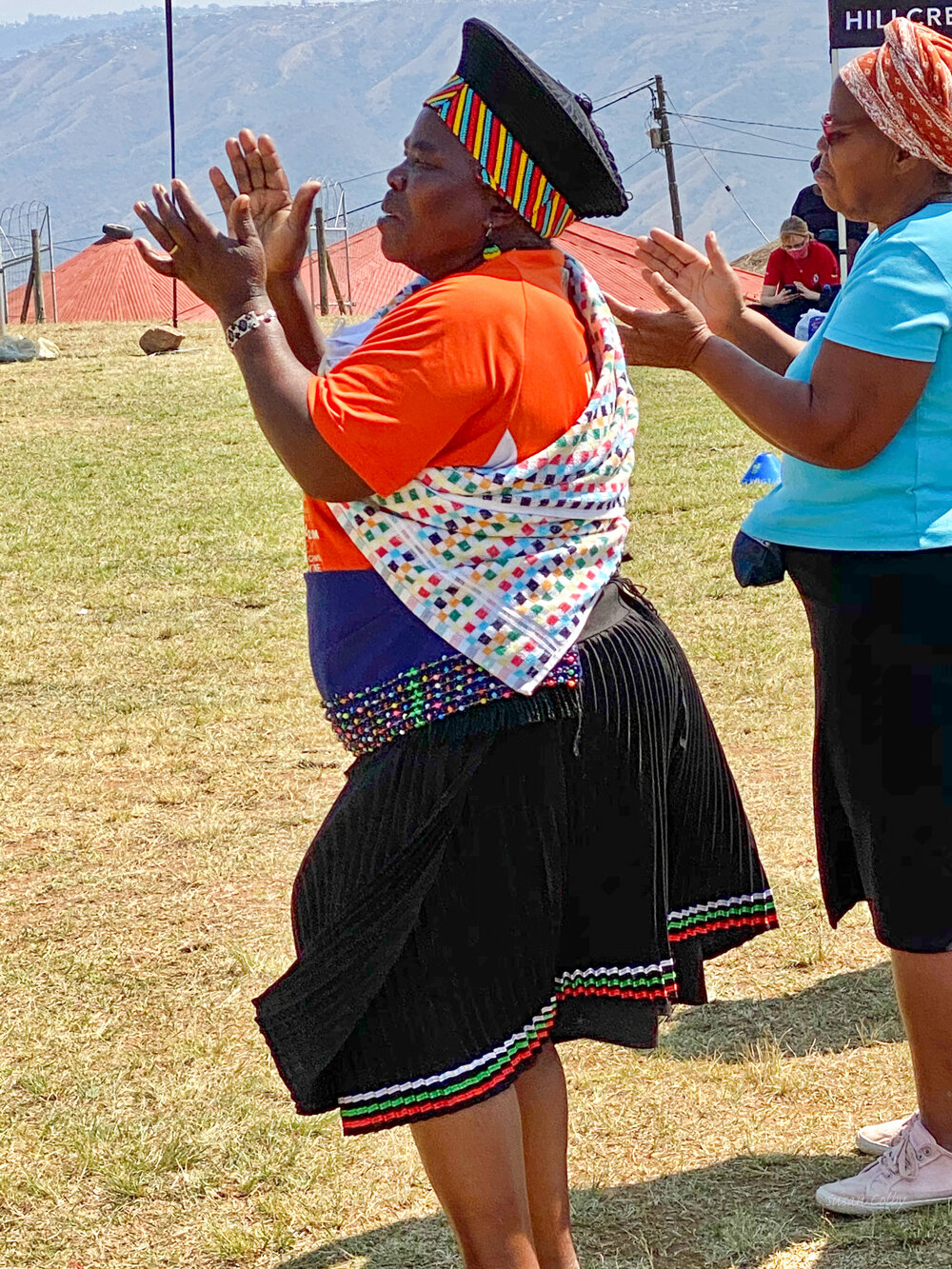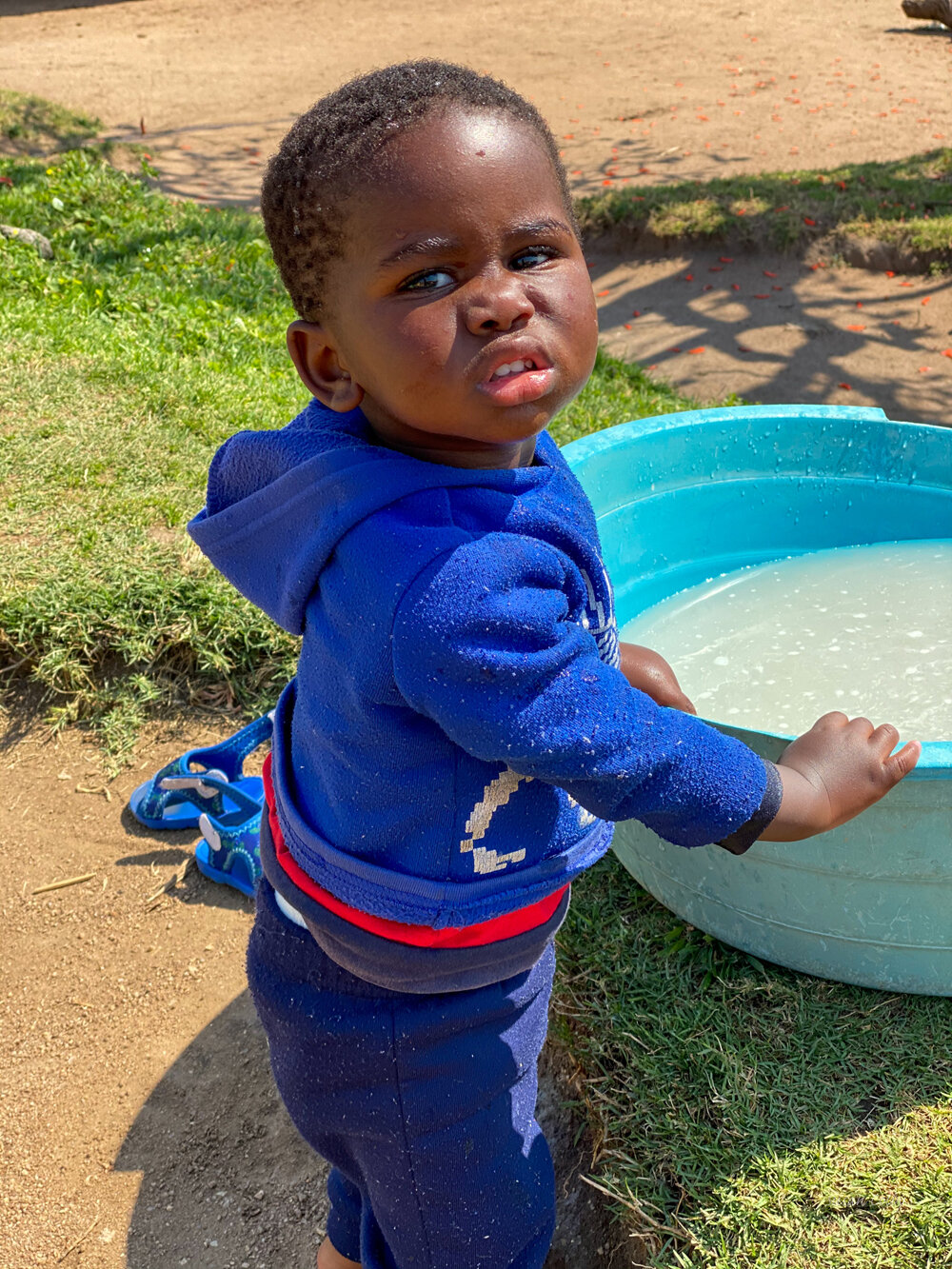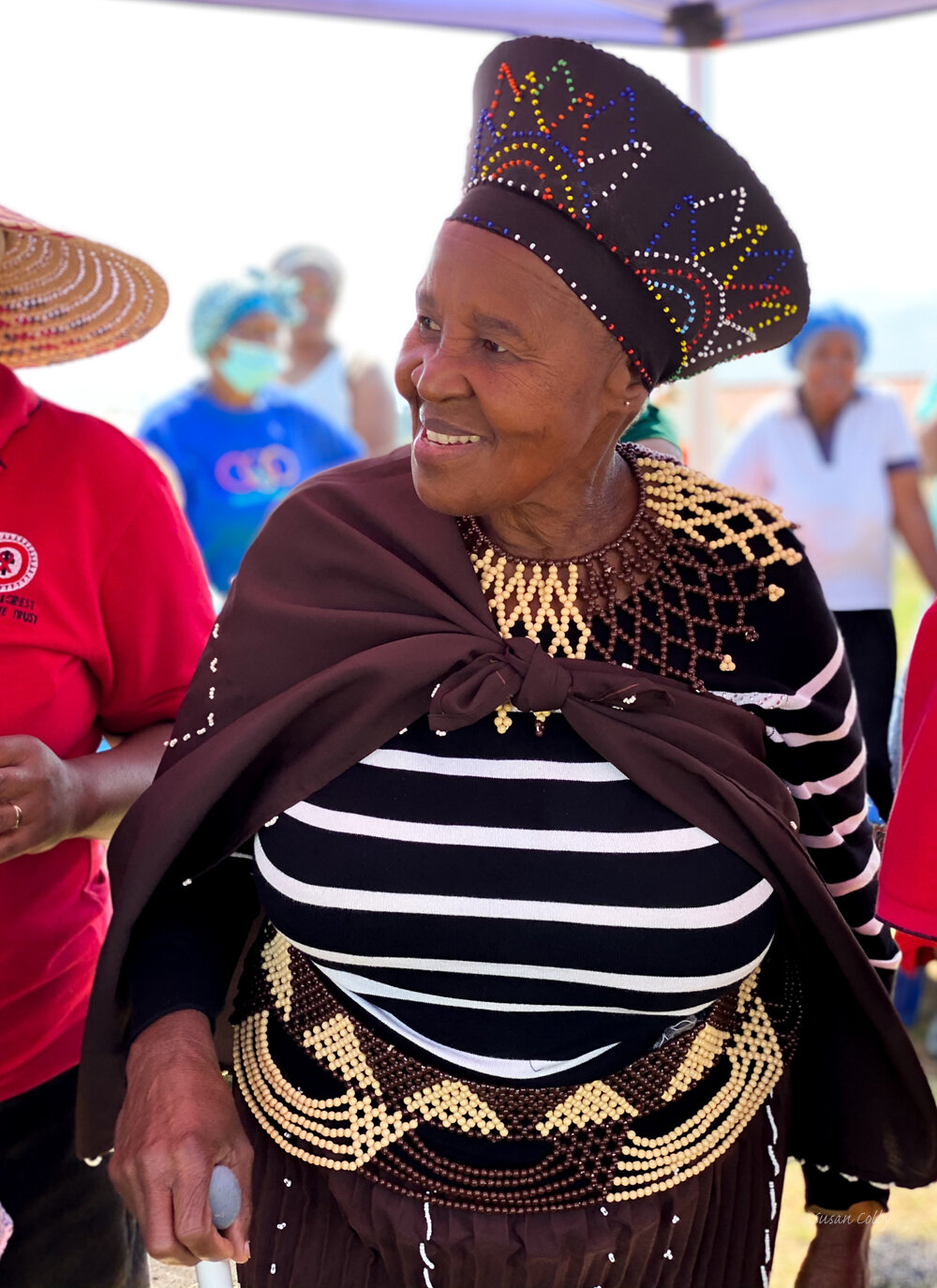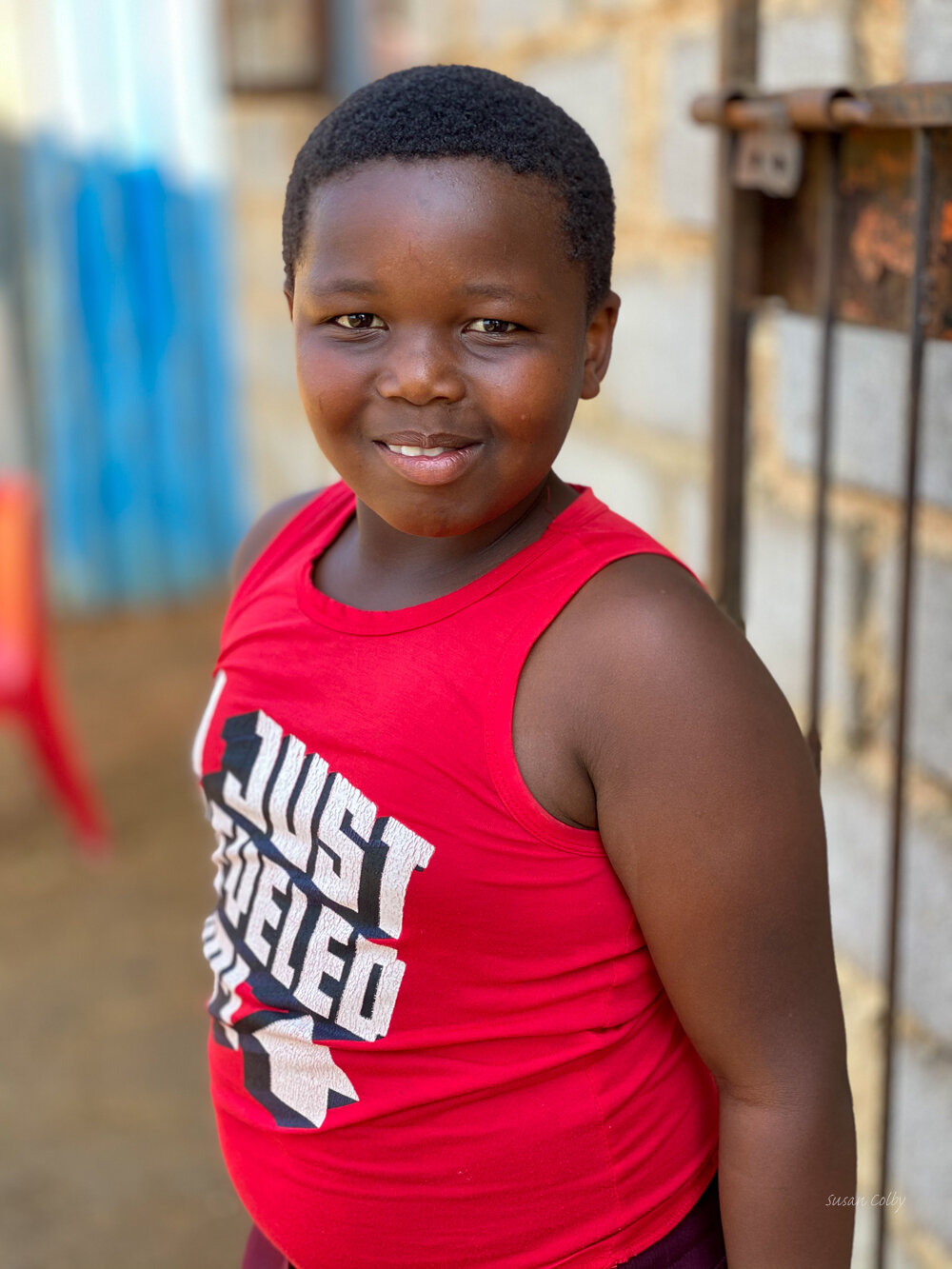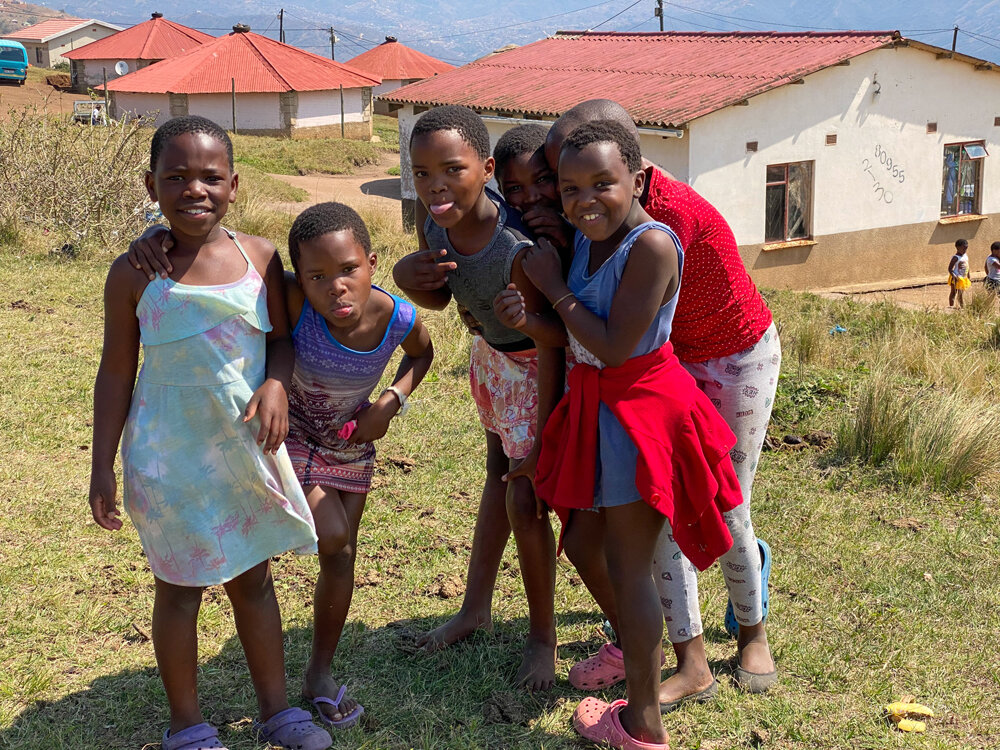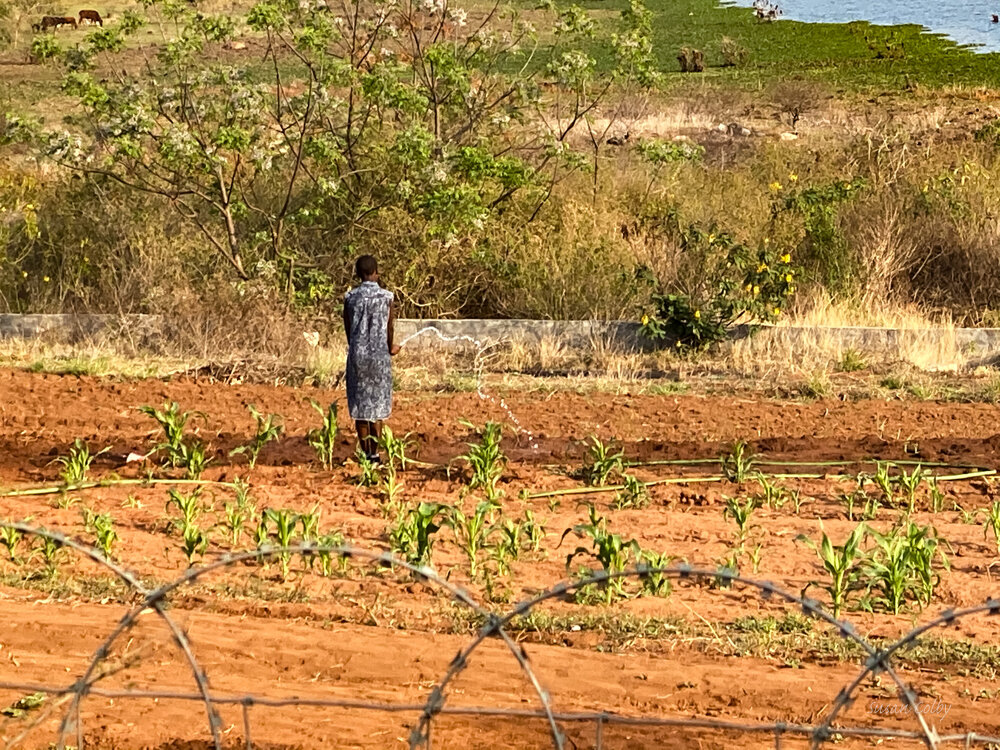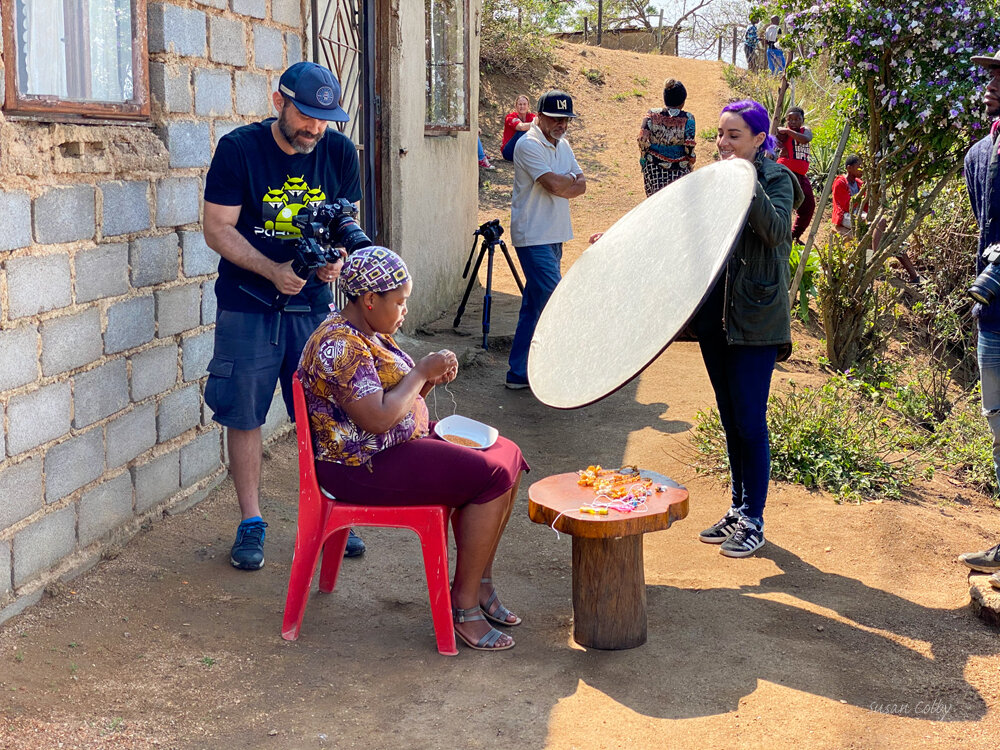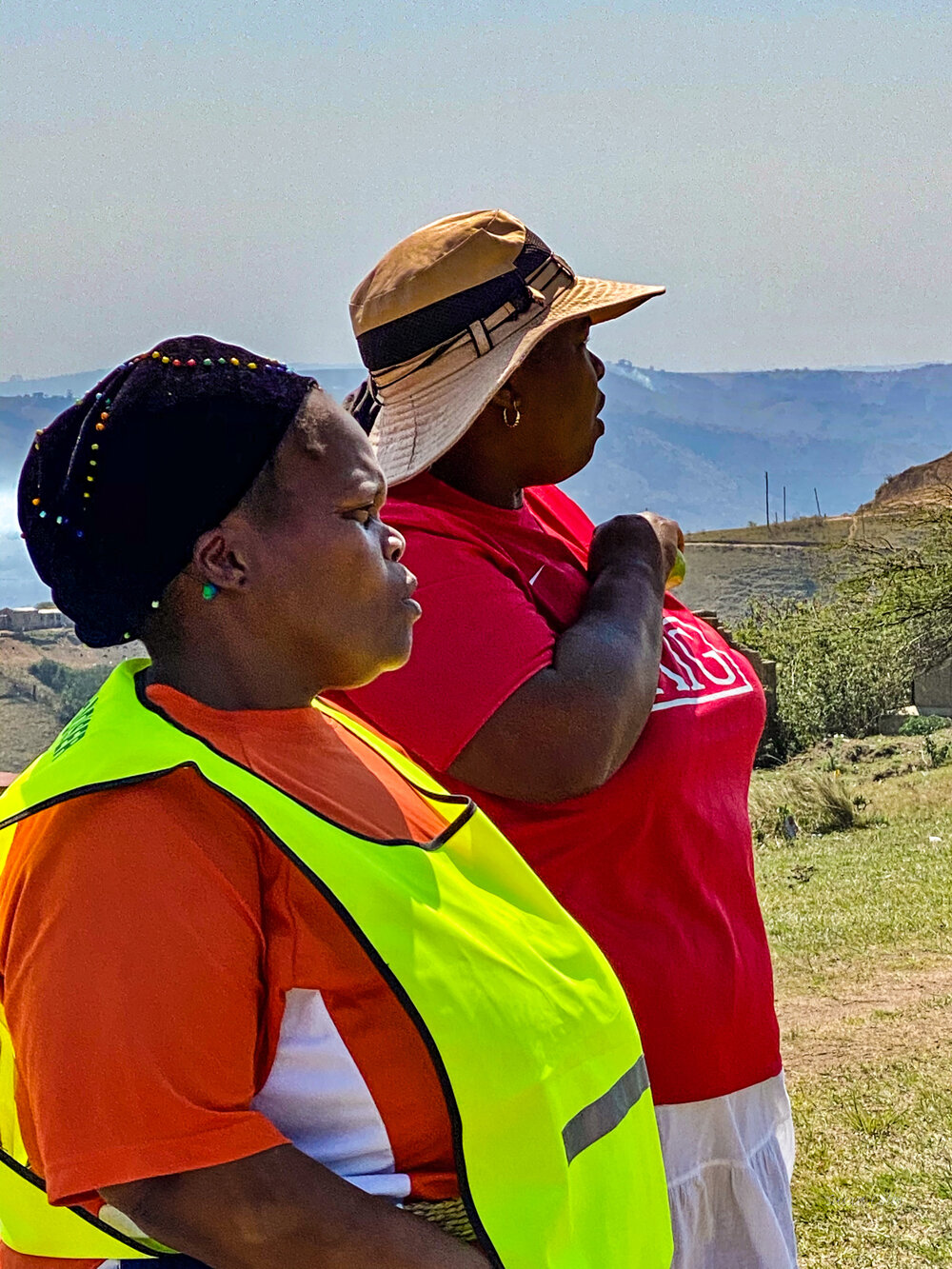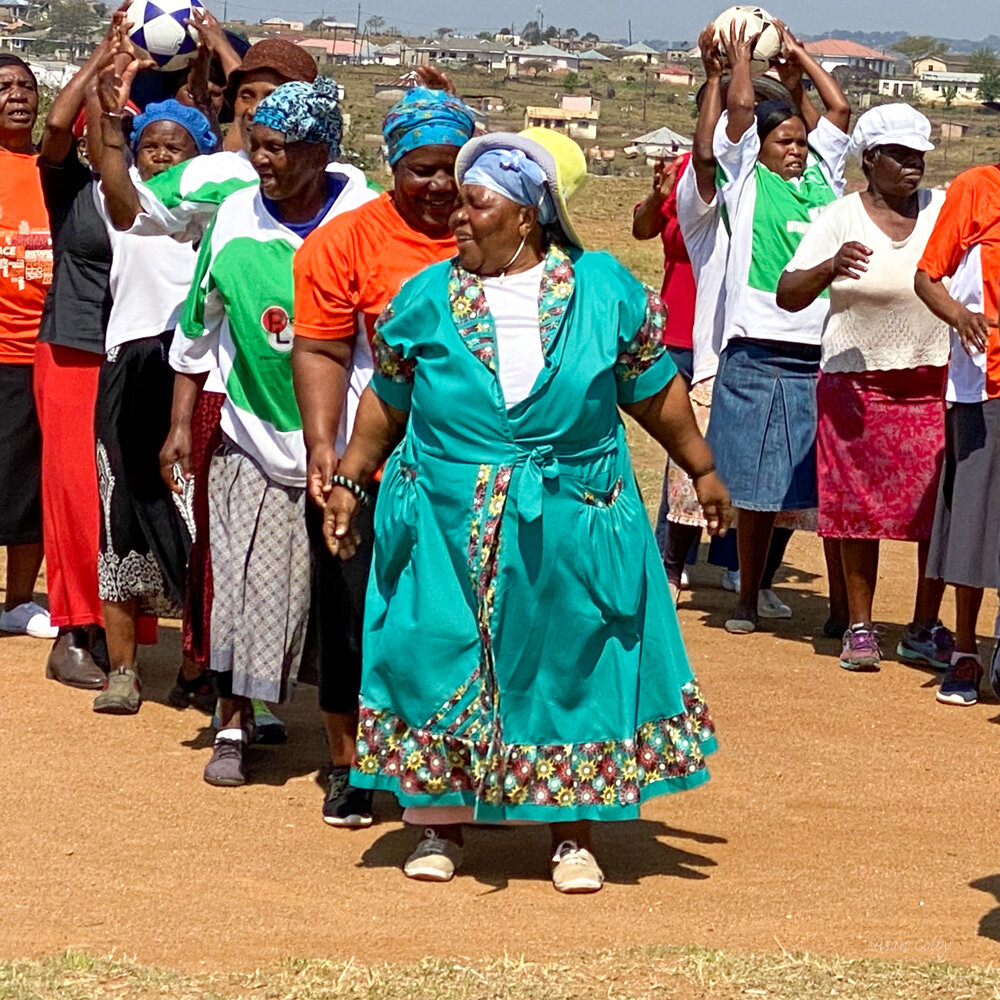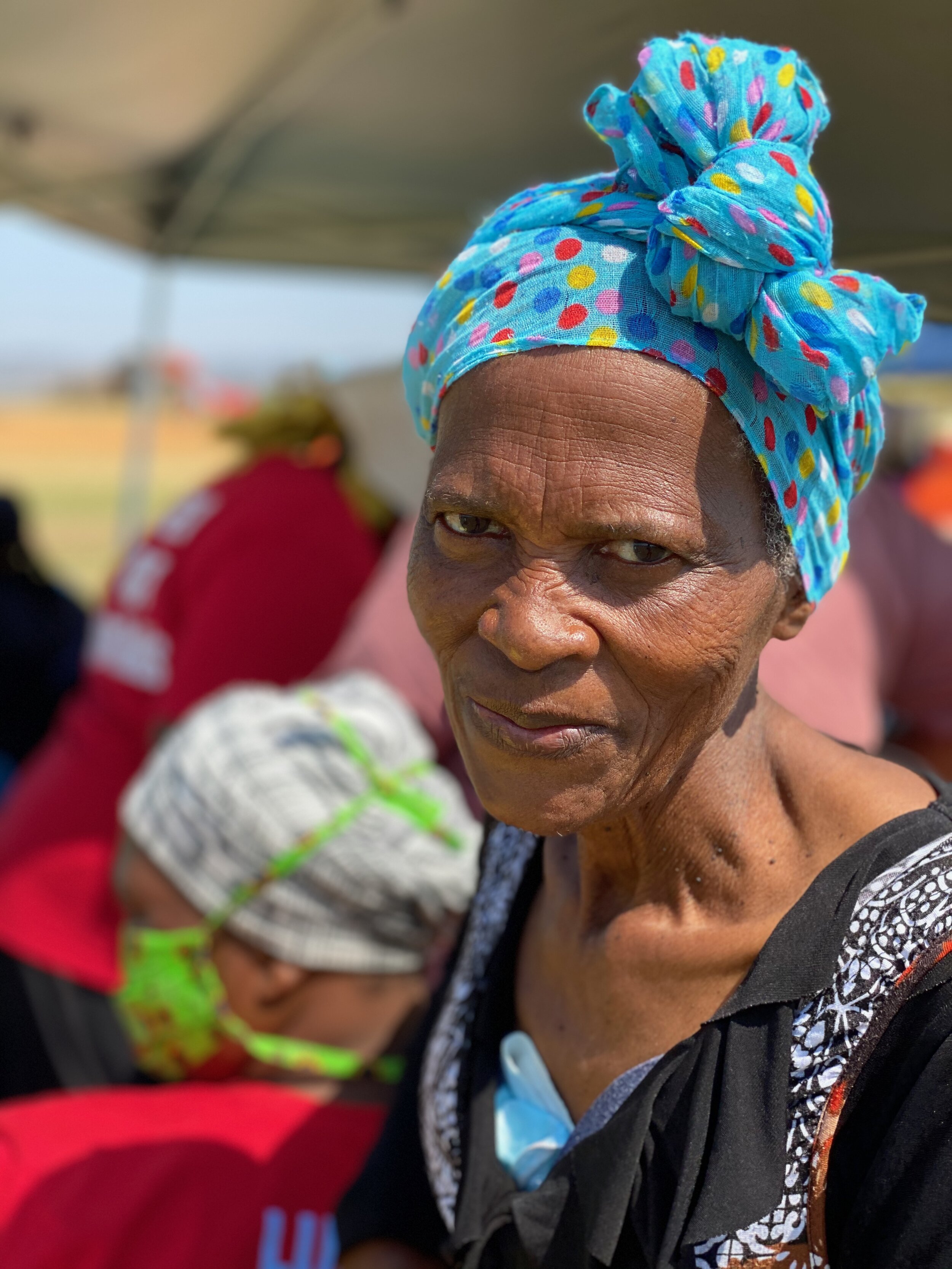Is getting up for anything at 3:45am worth it?
This adventure was definitely worth the wake-in-the-dark alarm clock. I’m usually awake by 5 so this wasn’t that much of a difference but getting on the road barely after curfew ends at 4 meant the roads were empty and it felt really eery! I did have time to make coffee and arrived at our rendezvous right on time.
With the others, Qin, Paula, Wendy and the film crew, we set off for the Valley of a 1000 Hills with the express purpose of filming sunrise footage for a proposed documentary. From there we were to go on deeper into the Valley to meet up with one of the exceptional beaders and then the Gogos, or grandmothers who are in “training” for the GoGo Olympics.
The valley and life there is a world (or two) away from what is familiar to me. I’m trying to be politically correct, but it’s night and day between my white world and their black world. I’ve been into this area several times but never spent a day there to see their lives close up. And it really makes me appreciate what I have, which in the grand scheme of things (and if I compare it to others around me, which I don’t usually do ) is not much!
After capturing the spectacular sunrise at 5:56 am, we continued on down the long and winding road (that’s a song, right?). The area is breathtakingly beautiful; rolling hills and valleys and far as the eye can see, with the Umgeni river meandering through it. Small enclaves of rudimentary houses dot the hillsides; goats and cattle graze and amble alongside - and on - the road. An occasional spaza shop (a small shop, usually made from a shipping container) sits beside the road. Most of the traffic was the ubiquitous taxis - vans that are supposed to only take 15 people but often carry twice that many - and boy, are the drivers crazy!
The goal was to get to the river for the drone to capture footage both up and down stream and with many stops along the way, Marcello the cameraman was, I think, able to get what Jacqui, the producer wanted. Qin and I were assigned to shoot B-roll, basically, anything we felt like!
Driving through the scattered communities, people didn’t seem in a hurry. Groups of people, adults and kids, sitting on the side of the road or standing around talking. There were people walking where there was not a home in sight, miles from anywhere. (This is something that has always amazed me in this country; you can be really out in the boonies, and someone will appear out of nowhere, walking to heaven knows where.)
Google doesn’t know this area very well, so most people will send a location pin drop instead of directions. Usually it works; sometimes it doesn’t! And we were running late for our next appointment. But after asking directions (the old-fashioned way) and thank goodness for Qin who speaks Zulu, we found out way to our beader’s home. Nobuhle is a lovely young woman who has built her house and a house for her parents from the money she is earning from her beadwork, which is exquisite.
She is one of the fortunate ones with a water tap in front of the house, but no plumbing, just an outhouse. There is electricity, with a pay-as-you-go meter. Everything is very basic by “our” standards, but what she has accomplished is amazing and her goal is to buy a car so she isn’t reliant on buses and taxis, which are expensive.
Then it was off to see the Gogos who by now had been waiting a long time and I felt really bad for them. I think every person from the area was there, as this was a big occasion. All were dressed in their finest, some in traditional headdresses and clothes, pulling on team jerseys over the top! They put on a demonstration of their training routines, often bursting into song with everyone joining in. Many of them busting out in dance! Then there was a short soccer match with lots of team support from the sidelines! It’s wonderful to see as it didn’t matter how old anyone was, what shape or size, everyone joined in. Kids were running around all over the place as it didn’t seem like school was open. They were fascinated by the whole process but on the whole, well behaved.
This year is the 10th anniversary of the Gogo Olympics. These women, the grannies, are the ones who end up taking care of all the grandkids when the parents either leave the area to find work or have died from HIV/Aids. A lot of the support comes from Hillcrest Aids Centre and Woza Moya. The program is designed to help them stay healthy and active, plus through the Aids centre, learn crafts including beading, to help support their families. The events they train for include soccer, netball, volleyball and others.
By early afternoon, me and my camera were running out of juice and some of us called it a day and headed out of the valley.
Unfortunately, with South Africa’s situation being what it is, I’m not able to go back on my own. Safety is a major concern and I have a couple of strikes against me - be female and white! But luckily for me, I’m able to go with Qin, the young Zulu man who works at Woza Moya, so I’m looking forward to more forays out into the wilds.
